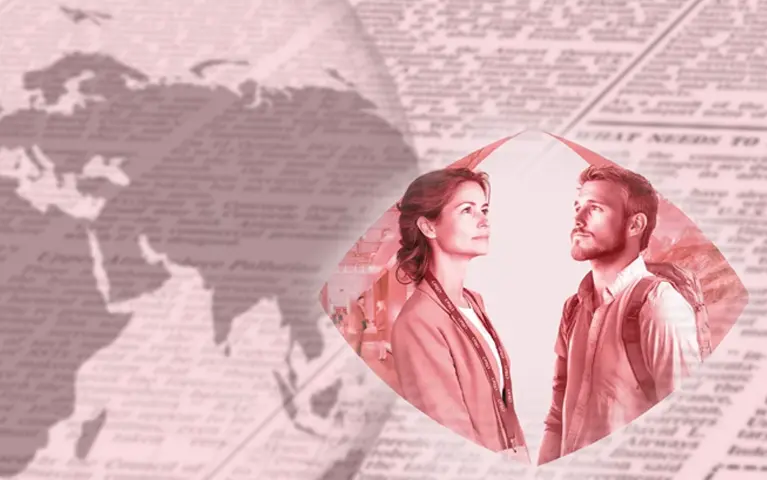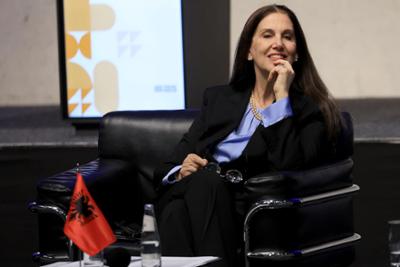

Mirela Kumbaro Furxhi: Albania to position itself as a year-round destination at FITUR 2026
Participating in FITUR has been a turning point for Albania's presence in Spanish-speaking markets, says Mirela Kumbaro Furxhi, Minister of Tourism and Environment.
She also announced that at FITUR 2026, Albania will position itself as a year-round destination and will present its new tourism products, its main advances in hospitality and the digital transformation of the industry.
On which pillars is the significant growth of tourism in Albania based?
Albania's tourism growth is based on three main pillars: authenticity, sustainability and diversification. Firstly, we offer genuine and unfiltered experiences, from traditional cuisine and local hospitality to preserved cultural heritage and unspoilt natural landscapes. Secondly, we are committed to developing a sustainable tourism model that protects our environment and, at the same time, creates value for local communities. We are perhaps one of the few cases where tourism and environment come under the same ministry, precisely to ensure harmonisation between tourism development and environmental protection.
Finally, Albania is expanding its offer beyond the classic "sun and beach" model by promoting cultural, eco-tourism, adventure and agro-tourism, making it an increasingly attractive year-round destination. Strategic investments, improved infrastructure and international partnerships have also played a crucial role in this growth trajectory.
What role do your country's scenic, cultural and historical attractions play in tourism development?
Albania's landscapes and rich cultural heritage are at the core of our tourism identity. From the unspoilt beaches of the Ionian and Adriatic Seas to the Albanian Alps and river canyons, our nature is both wild and accessible. We also offer a profound historical and cultural narrative: UNESCO World Heritage cities such as Berat and Gjirokastër, or the ancient city of Butrint, reflect millennia of civilisation. Visitors can explore ancient ruins, Ottoman-era cities and vibrant folk traditions all in one trip. The combination of natural beauty and historical depth makes Albania a unique and enriching experience for travellers seeking authenticity.
What sustainable tourism initiatives are currently underway in the country?
Albania has placed sustainability at the centre of its tourism policy. Today, 21.5% of our national territory is under legal protection, with 12 national parks and numerous natural parks forming the backbone of ecotourism. One of our most symbolic achievements is the declaration of the Vjosa River as Europe's first National Park of Wild Rivers, protecting a 480-kilometre-long river system and its biodiversity. We also promote agro-tourism and slow tourism, especially in rural and mountainous regions, where tourism is helping to generate income and preserve local traditions. Moreover, tourism and environment are part of the same ministry, ensuring policies that promote tourism while protecting natural and cultural assets.
What is the impact of the country's participation in FITUR on the Albanian tourism industry?
Participating in FITUR has been a turning point for Albania's presence in the Spanish-speaking markets. Our visibility has increased not only in Spain, but also in Latin American countries such as Brazil and Argentina, from where we now receive an increasing number of visitors. FITUR is a key platform for promoting our destination to tour operators and the international media, showcasing the progress Albania has made in terms of infrastructure, hospitality and services. It also strengthens our bilateral cooperation with Spain in the field of sustainable tourism development and investment.
Can you give us a preview of some of the proposals you will be presenting at FITUR 2026?
Although it is too early to reveal all the details, our presence at FITUR 2026 will focus on positioning Albania as a year-round destination. We will introduce new tourism products, such as cultural and gastronomic festivals and transnational ecotourism circuits in the Western Balkans, which will offer travellers authentic and sustainable experiences beyond the classic beach holiday. We will also focus on key developments in hospitality, including a growing portfolio of 4 and 5 star hotels from international brands.
In addition, we are pleased to present the digital transformation of the tourism industry. One of the highlights is TEA (Tourism Events of Albania), a mobile application launched by the Ministry of Tourism and Environment. All tourists arriving in Albania are invited to download TEA for free, giving them access to a real-time calendar of local festivals, concerts, cultural events and places of interest throughout the country. It is a dynamic tool that enhances visitor participation, promotes regional experiences and supports local tour operators. Our goal is to attract travellers who value nature, heritage, innovation and meaningful connections, and invite them to be part of Albania's ongoing transformation as a destination that combines authenticity with digital intelligence.





